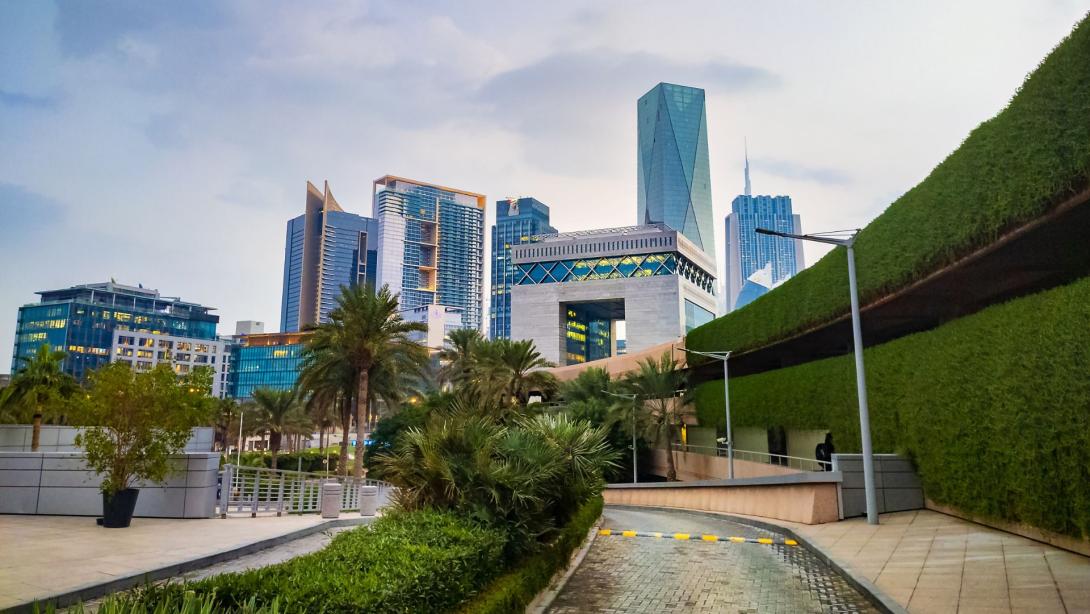
Leevyn Isabel – Commercial Director, Middle East at Ocorian
How are the wealthy of the Middle East engaging with the Dubai International Financial Centre’s (DIFC) continued push for innovation and embracing market-changing technologies like AI, Cloud computing and Web3? What does this require of practitioners? Are they having to learn new skills to meet client demands and needs? Are younger clients driving different focuses for private wealth? Leevyn Isabel explores how the Middle East’s wealthy elite are responding to the DIFC’s aggressive push toward innovation, and how this shift is influencing private wealth management. With innovation reshaping client expectations, Leevyn investigates the evolving role of advisors in a digitally-driven investment landscape.
The DIFC, a hub where international capital and regional ambition collide, has long been the beating heart of financial innovation in the Middle East. However, its approach has changed in recent years, moving from serving as a channel for conventional finance to becoming a test ground for emerging technologies. Artificial intelligence, cloud computing, and Web3 are no longer just catchphrases; they are now strategic priorities as the ultra-wealthy in the region look for more advanced, future-ready solutions.
The wealthy get smarter and more digital
Not only have the plutocrats of the Middle East embraced DIFC’s technology initiatives, but they’re also actively investing in and shaping them. This has been accelerated by recent growth in the number of ultra-high-net-worth investors in the region, increasing demand for more structured and institutionalised wealth management approaches[1]. This demographic, increasingly composed of second and third generation wealth holders, is showing significant interest in aligning their financial strategies with disruptive technologies. These actions, whether through direct investment in financial technology companies or redirecting capital allocation toward a blockchain-based platform, indicate that the region’s HNWI’s are pivoting toward digital fluency.
The DIFC’s innovation hub, currently home to more than 1,240 growth-stage tech firms, established innovation companies, digital labs, venture capital firms, regulators, and educational entities[2], has emerged as the testing ground for the wealthiest families and institutions in the region. They’re becoming co-creators, not observers, of the future financial ecosystem. Assets and experience with cloud-native portfolio management, AI-driven risk analytics and tokenised assets will never belong only to venture capitalist investors anymore.
A new breed of advisor: technologist meets strategist
Traditional advisory skills, while still foundational, are no longer sufficient. This shift has raised the bar for practitioners in the wealth management space. Practitioners need to know how decentralised finance (DeFi) works, the ramifications of regulations for digital assets, and security architecture for multi-cloud environments. In essence, the modern advisor is being recast as a technologist-strategist hybrid.
Private banks and multi-family offices in the DIFC are responding similarly. They are hiring data scientists, working with AI startups, filing legal opinions and growing capabilities as advisors. Advisory teams are undergoing pathfinders of capabilities and retraining to meet new client expectations that include digital asset custody and individual smart contracts to tokenised carbon credits and ESG assets.
The role of relationship managers has also similarly evolved. It’s no longer just about preserving capital; it’s about guiding clients through an increasingly complex landscape of digital opportunity and risk. This requires a holistic understanding of not just markets, but platforms, protocols and emerging asset classes.
Next-gen clients, next-gen priorities
While older generations still value preserving their wealth and legacy, younger clients tend to prefer digital-first solutions, purpose or sustainable investing, alongside innovation-led portfolios. Such generational preferences fuel a visible shift in client focus that leads advisors to think in ways that are out of traditional product thought.
Family offices in this region are embracing the change and allowing things like venture-style investing to be incorporated into their mandates and are targeting AI startups, green tech companies and blockchain infrastructure startups. Some family offices are also building in-house innovation labs or finding ways to collaborate with incubators located in the DIFC to experience the new types of technologies for themselves.
Additionally, next-gen clients are demanding transparency, speed and accessibility, traits synonymous with Web3 and AI-enabled platforms, with these innovations reshaping financial services by offering enhanced security, transparency, and efficiency[3]. The result? A new service expectation where digital dashboards and real-time portfolio insights, are now demanded and expected.
Strategic implications for investors and advisors alike
For businesspeople and HNWIs, the implications of this technological shift are extreme. First, it underscores the importance of staying informed. Whether through direct association with innovation hubs or strategic partnerships with digitally literate advisors, understanding the impact of technology on capital is no longer optional.
Second, it highlights the growing value of dexterity. With regulatory frameworks still evolving and technology advancing at speed, a flexible, experimental approach may prove more resilient than a cautious one.
Finally, it emphasises the need to future-proof legacy strategies. As wealth continues to pass over to younger generations, embedding innovation into portfolio design and governance structures will be key to sustaining relevance and performance.
The road ahead
DIFC’s innovation mandate is not a passing phase, it’s a defining strategy. With its embrace of emerging technologies, the centre is not just facilitating digital transformation, it’s redefining what it means to manage and grow wealth in the 21st century.
For the region’s wealthy, this presents a rare confluence of ambition, access and agility. For practitioners, it presents both a challenge and invitation. Evolve your skillset, expand your vision, and become a partner in innovation. In this new era of wealth management, success will belong to those who don’t just adapt to change, but help drive it.
Ocorian’s private client team delivers cross-border private client services for high-net-worth families and individuals across the Middle East and beyond. Contact our private client team today.
[1] https://www.cfainstitute.org/insights/articles/family-offices-middle-east-expansion
[2] https://www.difc.com/ecosystem/innovation-hub
[3] https://dubaiaifestival.com/blog/web3-and-ai-redefining-the-future-of-decentralised-finance/


